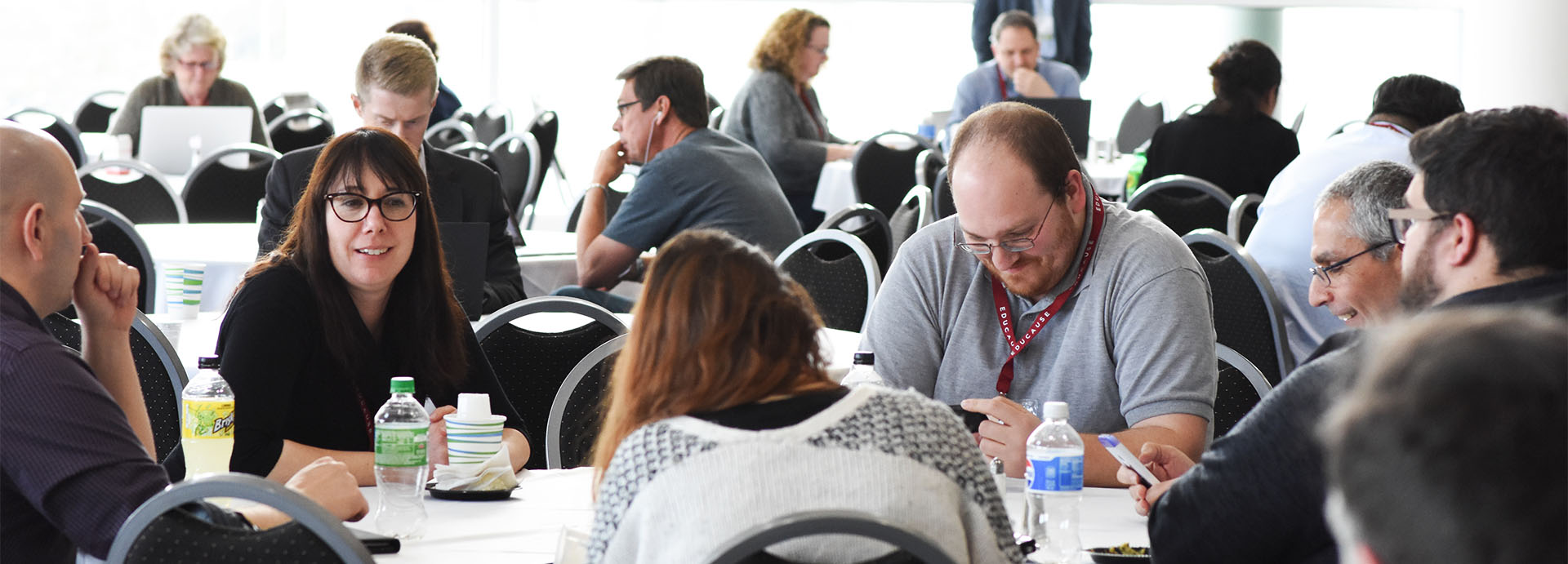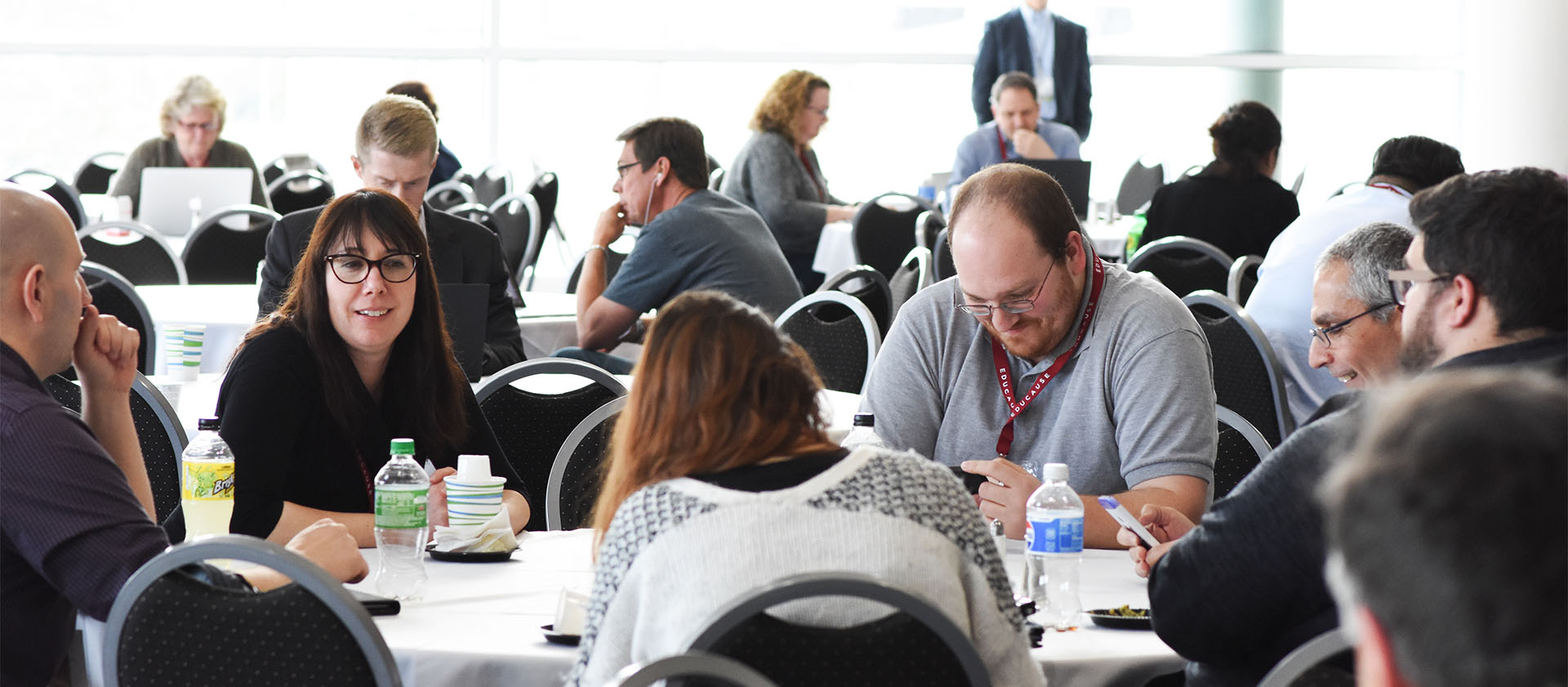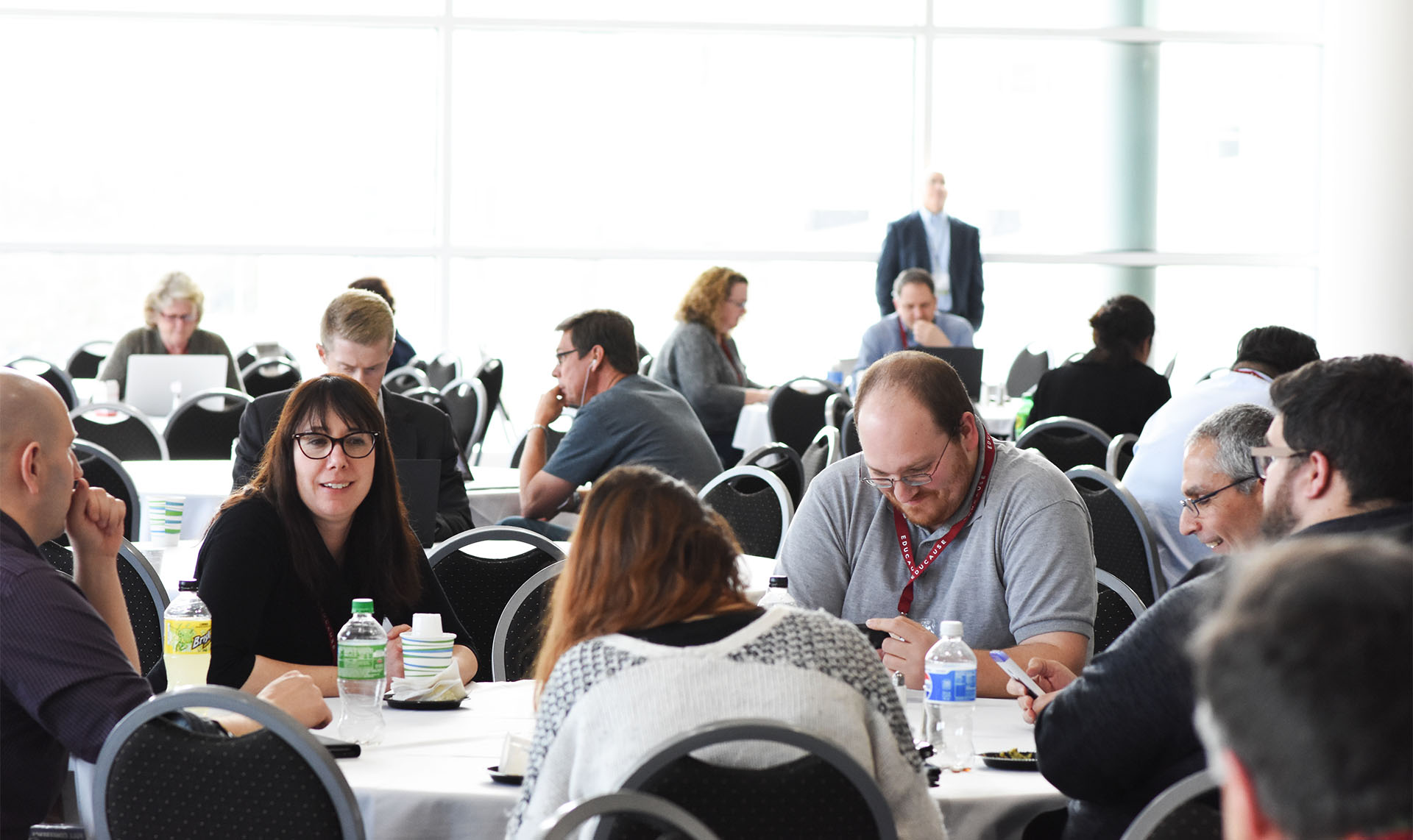- Overview
- Speakers
Generative AI and Higher Education: Disruption, Opportunities and Challenges (a Leadership Ecosystem Webinar)
Where: Webinar/Virtual
When: Wednesday, April 19, 2023
12:00 pm - 1:30 pm EST
Note: Zoom login instructions will be sent the day prior. If you have not received login instructions by 4:00 pm the day before the webinar, please check your spam folder, if you still have not received the login details please email nercomp@nercomp.org.
Workshop Organizers:
Stan Waddell, VP for Information Technology and CIO, Carnegie Mellon University and member of the Leadership Ecosystem Working Group
Event Overview:
The NERCOMP Leadership Ecosystem is pleased to host a one-hour webinar that will explore the implications of generative AI in education for campus technology leaders. This panel discussion will feature a highly regarded academician and three students who will share the impact of generative AI on their studies. The session will provide an overview of generative AI and its current developments, including its potential for administrative and pedagogical uses.
The panel will examine the ethical considerations associated with generative AI, and highlight the opportunities and challenges it presents for higher education institutions. As generative AI continues to disrupt traditional modes of teaching and learning, it is important for technology leaders to stay informed about the implications of this technology on their respective campuses.
This webinar will help equip technology leaders with the knowledge and insights they need to make informed decisions about how to lead their institutions in the face of this disruptive technology. Join us to learn more about the implications of generative AI for higher education, and how to stay ahead of this technological curve.
Learning Outcomes
- Identify ways generative AI is and will impact higher education from different perspectives including students
- Identify strategies and approaches for navigating the impact and ethical considerations of generative AI on higher education
- Discuss the importance of use cases and the value of live demos for further understanding and application
Panelists:
Lance Eaton, Director of Digital Pedagogy, College Unbound
Stan Waddell, VP of Information Technology and CIO, Carnegie Mellon University
Student Panelists:
Veronica Machado, Student
Loreley (Lora) Roy, Student
SteadFast, Student
Registration Fee:
NERCOMP Member: Free
Non-Member: Free
This session will not be recorded.
This session is for individuals employed by higher education institutions only. No vendors, please.
Accessibility
NERCOMP strives to make its online offerings and In-person workshops accessible for all registrants. Please contact us should you have an accessibility need. We've worked to provide resources that are accessible to as many people as possible, and if you encounter any issues while attending our events, please contact us at accessibility@nercomp.org or at 860-345-2081 to request assistance.
Lance Eaton, Director of Digital Pedagogy, College Unbound
Lance Eaton is the Director of Digital Pedagogy at College Unbound, a part-time instructor at North Shore Community College and Southern New Hampshire University, and a Ph.D. student at the University of Massachusetts, Boston with a dissertation that is focusing on how scholars engage in academic piracy. He has given talks, written about, and presented at conferences on artificial intelligence generative tools in education, academic piracy, open access, OER, open pedagogy, hybrid flexible learning, and digital service learning. His musings, reflections, and ramblings can be found on his blog: http://www.ByAnyOtherNerd.com
Stead Fast, Student
Steadfast, is a 2nd-year student at College Unbound concentrating on community engagements within the arts. They will be graduating this spring and will be looking to join a local organization focused on creativity and exploration as program coordinators. Their goal is to make the art world as accessible as possible and bridge the gap between what's usually in museums and those living in the community today. With AI they can see a potential for brainstorming, organizing, and expedition.
Veronica Machado, Student
My name is Veronica Machado I am from Cranston R.I I am A single mother of 2 young boys who are 9 and 13. My youngest is on the spectrum and in special education and was one of my inspirations for the development of my core project.
I work at an Elementary School in Lincoln RI with 5th and 6th graders. I hold a position as School Circles/Restorative Circles chair leadership, DEI chair leadership but My focus at work is with children that have IEPs and 504s in special education and Gen Ed as well as emotional and behavioral disabilities.
I am currently in my second semester of the TA (Teacher’s Assistant) to BA (Bachelor of Arts) program here at CU. Throughout my time here at CU I have been focused on my CU core project which is based on Special Education and children with behavioral and emotional needs which leads to my professional interests in AI! I believe that there is a world of so many great and therapeutic possibilities with the use of AI in education but in particular in the special education department for all children, whether they have a form of disability, are on the spectrum, and have behavioral and or emotional disabilities. My goal is to find a tool or create a tool like what we have been exploring that can help our children thrive and succeed regardless of what disability they may have or where they are on the spectrum. I also believe that this tool can help teachers in this department develop and create better strategies to better support their classroom and students.
Loreley (Lora) Roy, Student
I am a teacher's assistant in an ELL self-contained intermediate classroom. I work with children in grades 3-5 with special needs and different learning abilities. I am in my first year at College Unbound in the TA (Teacher’s Assistant) to BA (Bachelor of Arts) program.
I want to see AI used to help children struggling with learning to read and write. The potential of this tool could dramatically enhance how our children learn. We could have Interactive educational games, AI-powered virtual assistants to help with social and emotional needs, and AI algorithms could be used to help teachers create personalized learning plans for students based on their individual needs and learning styles.
Stan Waddell, Ph.D. Associate Vice President and CIO Carnegie Mellon University
Stan Waddell, a senior information technology leader, joined Carnegie Mellon in April 2019 as associate vice president and chief information officer (CIO). In this role, Dr. Waddell will provide vision, leadership, and management to CMU's entire computing enterprise, including the development and implementation of a university-wide IT strategy. Waddell will serve on the Division of Operations Senior Leadership Team, as well as the University Leadership Council.
Before joining CMU, Waddell worked at the University of New Hampshire as the Associate Vice President for Information Technology and CIO. Before joining UNH, he was assistant vice chancellor and chief technology officer at the University of North Carolina at Chapel Hill and spent nine years at the University of Texas Southwestern Medical Center. Waddell also served in the U.S. Navy as an aviation electronics technician for nine years.
Waddell has held both the Project Management Professional (PMP) and Certified Information Systems Security Professional (CISSP) credentials. Waddell also holds a graduate certificate in information assurance from Nova Southeastern University a designated National Center of Academic Excellence in information assurance. In addition, he obtained a Bachelor of Science in Electrical Engineering from Old Dominion University, a Master of Science in Management and Administration Sciences from the University of Texas at Dallas, and a Doctorate in Information Systems from Nova Southeastern University.





